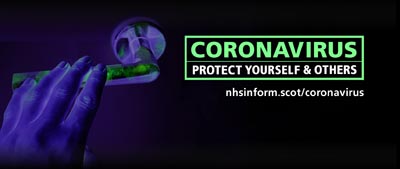New guidance and local support is being implemented to help shield around 200,000 of the most at-risk Scots from coronavirus (COVID-19).
The measures are tailored towards supporting people with the highest risk of severe illness from the virus, as identified by the UK’s Chief Medical Officers. Scotland’s CMO Dr Catherine Calderwood will also be writing to those identified as being at greatest risk in the coming days to provide further information and bespoke guidance on how to best protect themselves from infection.
The new support being offered will help people self-isolate – thereby making it less likely that they will contract the virus – and protect them from the detrimental effects of self-isolation, including disruption of crucial health and social care, and social isolation and loneliness.
Deputy First Minister John Swinney has ordered the establishment of Humanitarian Assistance Centres across the country as soon as possible.
Mr Swinney said:
“Responding to the coronavirus pandemic is the biggest challenge of our lifetimes, and we must do all we can to slow it down and save lives.
“That’s why we are asking people at the highest clinical risk to self-isolate for a long period, and our local services must prioritise them. This will help protect them, minimise the loss of life from Covid-19, and reduce the burden on the NHS in responding to patients who are likely to become severely unwell.
“I have every confidence in the capability of Scotland’s resilience community to effectively lead what will be the biggest response effort ever undertaken in peacetime. We know that it won’t be easy, but by working together everyone can play their part in keeping people safe.”
Background
The new support will be made available through GPs and local resilience partnerships, and will include help with medical conditions, access to medicine and services, and also access to food and supplies
The Deputy First Minister has written to Local Resilience Partnerships around the country asking them to set up Humanitarian Assistance Centres (HAC) or an equivalent arrangement.
The Scottish Government is engaging with suppliers to put in place a national framework to ensure supplies can be secured at a local level.
The six categories of risk – as agreed by the UK’s Chief Medical Officers – are:
1. Solid organ transplant recipients
2. People with specific cancers:
a. People with cancer who are undergoing active chemotherapy or radical radiotherapy for lung cancer
b. People with cancers of the blood or bone marrow such as leukaemia, lymphoma or myeloma who are at any stage of treatment
c. People having immunotherapy or other continuing antibody treatments for cancer
d. People having other targeted cancer treatments which can affect the immune system, such as protein kinase inhibitors or PARP inhibitors
e. People who have had bone marrow or stem cell transplants in the last 6 months, or who are still taking immunosuppression drugs
3. People with severe respiratory conditions including all cystic fibrosis, severe asthma and severe COPD
4. People with rare diseases and inborn errors of metabolism that significantly increase the risk of infections (such as SCID, homozygous sickle cell)
5. People on immunosuppression therapies sufficient to significantly increase risk of infection
6. People who are pregnant with significant congenital heart disease
The first port of call for anyone looking for information is the NHS Inform website.






